If war breaks out, how will the US and North Korea 'act'?
Analysts are painting a picture of potential disaster – chemical weapons launched across the border, an artillery barrage on Seoul, nuclear strikes on major cities and a practical test of US missile defenses.
When Barack Obama left the White House, he reportedly told his successor, Donald Trump, that North Korea was the most pressing challenge facing the new US President.
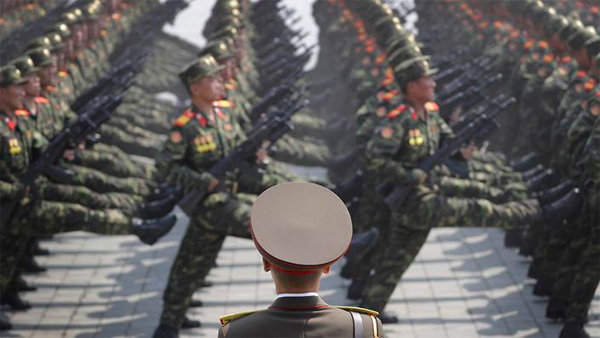 |
North Korea has a large armed force. Photo: AP |
North Korea has been working to develop nuclear weapons and intercontinental ballistic missiles (ICBMs), with the aim of building a nuclear-tipped missile capable of reaching the United States. Pyongyang argues this is necessary to defend itself against US aggression.
Kim Jong Un’s regime also claims to have achieved the ability to miniaturize a nuclear bomb to fit on a missile. However, the country still does not have a functioning long-range missile.
The US is showing its determination to stop North Korea's nuclear ambitions. President Donald Trump is increasing diplomatic and military pressure on the Asian country. He is also urging China to act to contain the Kim Jong Un regime.
In addition, Washington has installed and put into operation the state-of-the-art THAAD missile defense system in South Korea.
The US has not ruled out a military strike on North Korea if these efforts fail. Pyongyang has threatened a preemptive strike. Military action on either side could lead to a catastrophic conflict. As Mr. Trump himself has acknowledged, a potential war with North Korea could cost millions of lives.
Decision to attack
The US believes it is unlikely that North Korea could threaten its survival by launching an attack on the US or its allies. US nuclear weapons are sophisticated and highly deterrent.
However, the recent war of words between the two sides has made many people worry about the risk of war breaking out, especially when the US supercarrier Carl Vinson was sent to the region.
Malcolm Davis, an analyst at the Australian Strategic Policy Institute's Defence Capability and Strategy Centre, said that if North Korea continues to pursue nuclear missile technology, it could push the US into a preemptive strike.
"The challenge will be over a period of 18 months, because North Korea is very close to being able to put a nuclear warhead on an ICBM," Malcolm Davis told SBS News. "The US will then be forced to act to deter North Korea, not to be intimidated."
According to Davis, developing a missile that could deliver a nuclear bomb to the US mainland would be an intolerable red line for the world superpower.
US attack
It is not yet clear how the US would respond if it launched a preemptive strike against North Korea. However, analysts speculate that it would be a surprise attack to minimize the possibility of retaliation.
 |
The US has dispatched the super aircraft carrier Carl Vinson to the region. Photo: SBS |
Although North Korea's air and naval forces are relatively easy to target, the country operates hundreds of mobile short- and medium-range cruise missile launchers, according to a 2015 Pentagon report. And North Korean missiles have the range to reach major cities like Tokyo and Seoul, including some US bases in the region.
The Pentagon currently has more than 73,000 troops stationed in Japan and South Korea. And while the US has the capability to destroy North Korea’s mobile missile launchers, pinpointing them at the same time is a challenge. So some launchers may survive the initial hit.
North Korea's actions
Analysts say North Korea's response will be swift.
Any kind of military attack would likely lead to a response that could easily escalate into all-out war.
In addition to its missile capabilities, the US suspects North Korea maintains a chemical weapons program. It has a large, traditional, and agile military – most of it positioned within easy striking distance of South Korea – that the Pentagon believes could be launched without warning.
South Korea's capital Seoul is only 50km from the border, so as described by US Senator John McCain, "the carnage was horrific".
Any attack on North Korea could trigger a painful retaliation, experts say.
"In some of the worst-case scenarios, we're talking about all-out war on the Korean Peninsula. We're talking about North Korea shelling Seoul, launching chemical, biological, even nuclear weapons at South Korea and Japan. So we have to be prepared for that," Mr. Davis said.
China's response
For many years, China has been a major ally of North Korea, providing strong economic support. It has done so with its own strategic calculations, according to Professor Pei Minxin, an expert on US-China relations. "To the rest of the world, North Korea seems very aggressive and unreasonable, but to China, North Korea is very valuable, acting as a security buffer between the US and China," he said, adding that without North Korea, the 28,000 US troops in South Korea would be stationed right on China's doorstep.
In 1950, the United States and China were drawn into a war on the Korean Peninsula. But today, while China dislikes the US showing off its aircraft carriers in the region and setting up the THAAD system in South Korea, the two countries are unlikely to go to war over North Korea.
However, if war broke out between the US and North Korea, it would have a major impact on China, especially the risk of a refugee crisis spilling over the border. Therefore, Beijing does not want this.
Avoid disaster
Analysts say that in a war with North Korea, no side would win.
The US would put tens of thousands of troops in the region at risk, South Korea and Japan could face attacks on major cities, the regime in Pyongyang would be at risk of collapse, and China would have to deal with a major strategic and humanitarian disaster.
But since neither country has taken the initiative to resolve the conflict so far, the strategic calculations of North Korea and the US will become difficult to reconcile.
"The real solution for the US and China is to somehow work together to eliminate this threat. But the problem is how to do that without causing war on the peninsula. And the situation is very uncertain, because the leaders of both the US and North Korea are very unpredictable," commented analyst Malcolm Davis.
| RELATED NEWS |
|---|

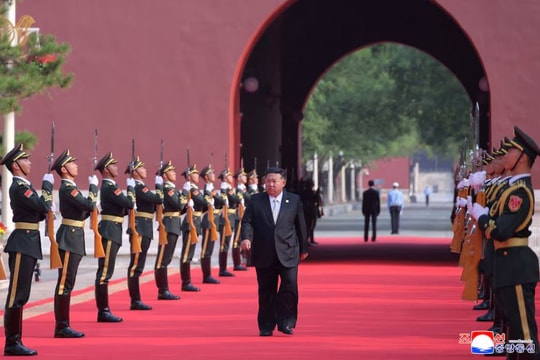
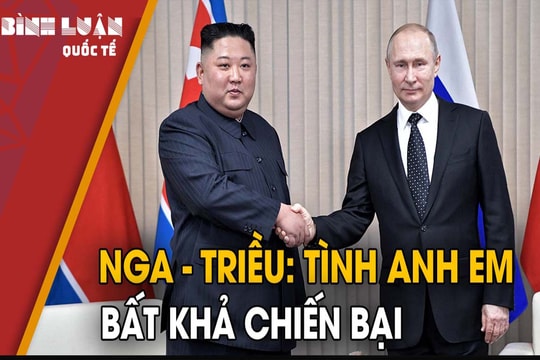

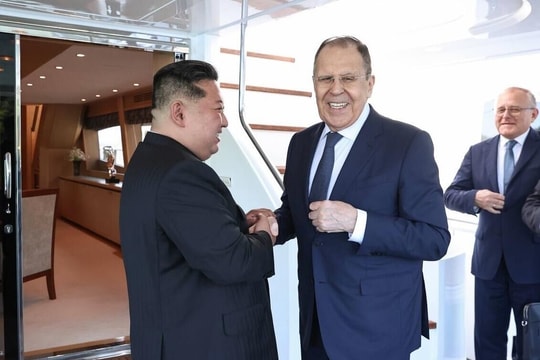
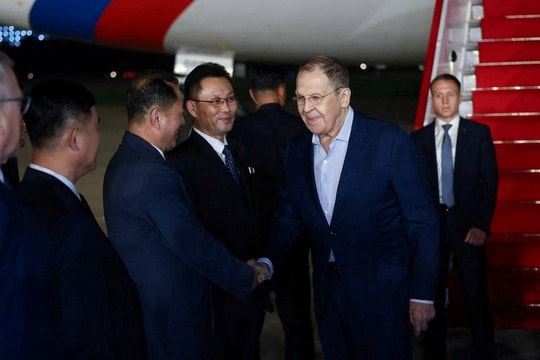
.jpg)

